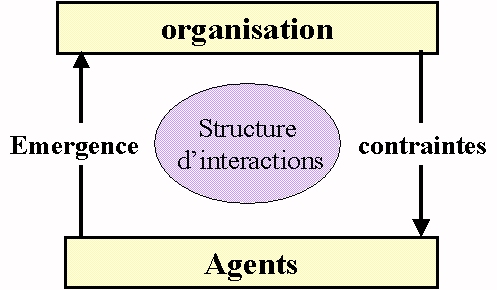
 |
Moduleco
|

Multi-agent systems are popular in computing science and within the domain ofartificial intelligence. Generally, the Agent is defined as refeiring to a software component which is capable of acting in order to accomplish a specific task, such as finding information on the Internet.
In the theoretical research Area, Multi-agent systems were introduced in order to simulate "life" and investigate "historical" questions (like life emergence, or species co-evolution by experiments "in silico", (Langton [1995.]) as well as to simulate with very simple rules the complex behavior of animals, like flocks of birds (Reynolds [1987]). The interest in Multi-agent systems in Economics is strongly correlated with the Artificial life Movement (Lane [1993]). The aim of those models is to abstract general (analog) formal properties from social and natural systems, independently of the specific context The specific field of interest is complex adaptive systems, and the key feature is viewing the emerging order as a product of the system dynamics (system attractor), and more specifically of its element interactions. (Bonabeau [1994]).
The most famous Multi-agent systems is SWARM, initiated by Langton [1995]. Applications to the economic field are reviewed by Luna, Stefansson [2000]. This paper is dedicated to the presentation of MODULECO, a Multi-agent system, built in order to simulate a market phenomenon in a "virtual lab", and more generally models of social choices involving both individual learning and collective learning.
Denis.Phan@enst-bretagne.fr ; Antoine Beugnard@enst-bretagne.fr